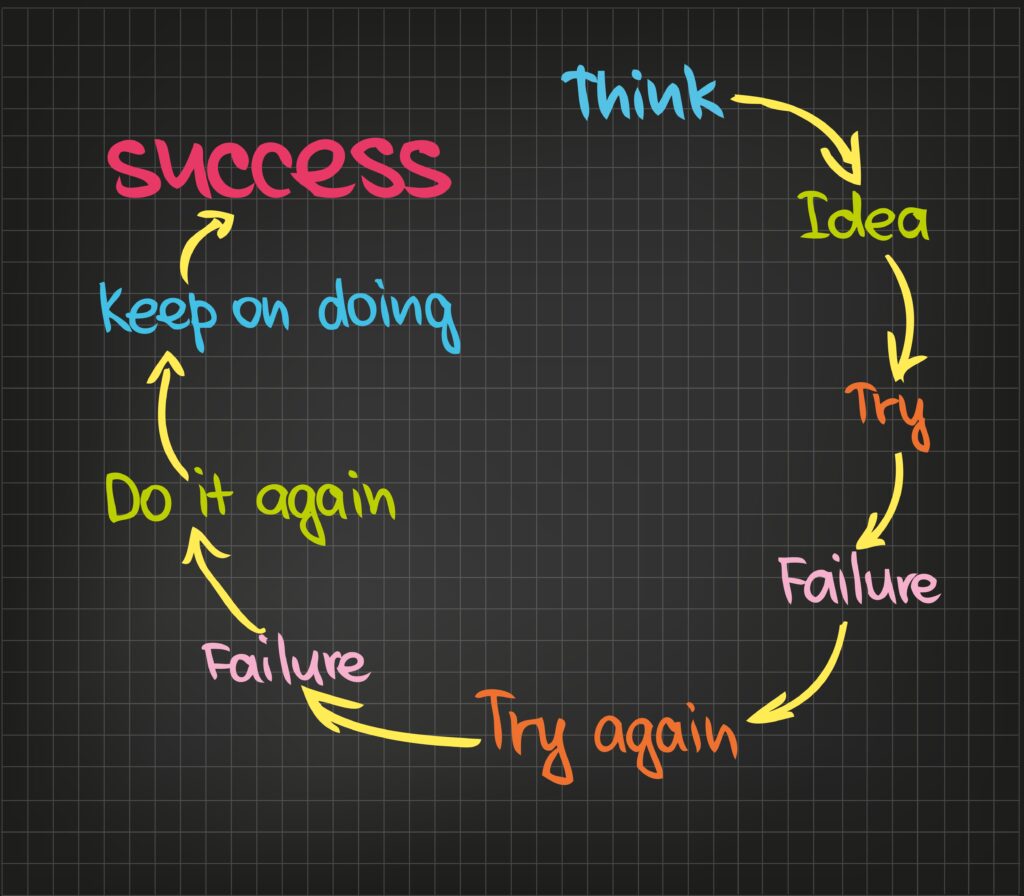6 Reasons You Lose Motivation After Getting Started
Have you ever made big plans for your life starting in the new year, only to fail to act on them? Or maybe you started with a bang and kept your motivation for a few days but suddenly lost interest and momentum. Has January 2022 already crushed your hopes of a New year, New you?
It’s easy to lose motivation after the initial excitement wears off. If you want to be successful, it’s essential to keep going. As they say, every inch forward helps. If you fall off your plan, don’t give in completely, do one good thing towards your goal and get back to working on the plan. The work isn’t going to get done itself.

Understand why you lose your motivation:
- The planning phase is more fun than the execution phase. Sitting alone at night and making plans for the future can be an exciting time. Everything seems possible because your imagination only limits you at that point. Knowing why you want to change, add, or eliminate certain behaviors in your life is critical, and referring to your WHY will help you stay on track.
However, when the alarm sounds in the morning, it’s time to get busy. It all seems a little more daunting and less enjoyable when it’s time for you to start the day off working your plan. Don’t be surprised when roadblocks suddenly appear. Review your WHY and get back on track.
- You lose track of the result (the why). Remind yourself of the prize at the end of your journey. Visualize how it’s all going to be when you’ve reached your goal. You should feel an immediate boost of motivation. Review your WHY in a written plan, journal, or vision board for inspiration.
- Your goal doesn’t suit you. Many of us choose goals that are acceptable to the world at large. It might be losing tons of weight or running a marathon. Maybe your plan is totally mismatched with your current health state, desires, or temperament. Ensure that you’ve chosen goals that match your current abilities. Once you meet your first goal, like cutting sugar intake in half, you can always set a second goal of losing 10 pounds. Think of it as stacking your goals together. Cutting sugar intake will most likely help you lose weight.
- You feel uncomfortable and aren’t dealing with it effectively. Of course, it’s awkward to do anything new. Whether it’s dealing with a new health issue like diabetes, beginning a workout routine, or a new diet, it’s going to be uncomfortable. It’s important to deal with this discomfort effectively.
Expect to feel uncomfortable. Have a plan for working through it. If you’re making changes to your life, discomfort is the norm. Failing to plan leads to failure. Re-writing a plan to fit your reality, passion, and drive is smart. So, you didn’t walk 5 miles every day this week, but you did hit 10,000 steps. That’s good! Next week shoot for 15,000 steps. And when you make that goal add more steps and repeat until you hit your 5 miles a day goal. Little gains made daily add up! Doing nothing or giving up altogether only hurts you and the goals you set. Do something towards your goal every day even if you don’t hit the entire goal, and by the end of the week, you will have accomplished more than quitting ever will.

- You have too many negative thoughts. Negative thoughts are paralyzing, and negative thoughts will make you rationalize that you should quit. Though it doesn’t always feel like you have control over your thoughts, you do. You can choose what you want to think about and what you do not want to. When negative thinking happens, acknowledge it and then remember your why. Example: If you think to yourself, “I will never lose this weight,” change the thought to “I will lose this weight by working my plan.” Repeat this as mean times as it takes for you to change your mind. Only you can prevent your negative thoughts.
Take control of your thoughts. Catch yourself early in the process of thinking negative thoughts and redirect your focus to something more positive. It takes time to develop this ability, and the key is to notice quickly that your thoughts are going off the rails. Re-read your plan. Your WHY always helps.
- You’re stuck in your old habits and routines. The older you are, the more challenging it can be to break out of your old patterns. We find comfort in our old routines, and our brains become hardwired to repeat them. You’ll need to create new habits and routines to change your behavior and your results.
Identify one habit getting in your way and one habit you need to create to attain your goals. Put your time and energy into dealing with these two items. When you’re successful, tackle two more. Rinse and repeat until your new habit takes root, and the old habit dies off. Autopilot will take you back to old, hardwired habits. Becoming new, you take work. If your WHY is strong enough and you are making the changes for yourself and not someone else, your WHY will give you the strength to move one step closer to the end goal. Remember, it’s not all about the end game; the journey, itself, is part of the entire experience. Growing and stretching through any change process will expand your heart and mind. Quitting sets you back and robs you of the joy of accomplishments. We highly suggest you don’t quit; pivot if needed, but don’t quit.
Which of these six reasons applies to you most often? Is there another reason you fail to sustain your motivation? Motivation and willpower can be highly variable.
Expect that your motivation will falter and be prepared to deal with it. Focus on creating habits that will take you to your goals because habits reduce motivation and willpower. If you want information on diet and exercise routines to help, you lower your numbers or lose weight, email us at info@DETSutah.com.



